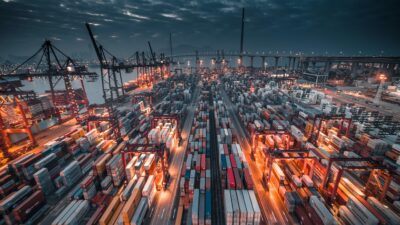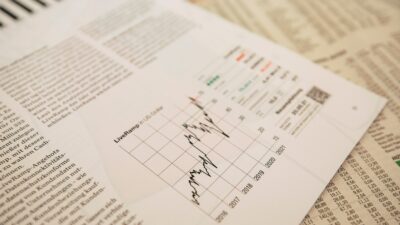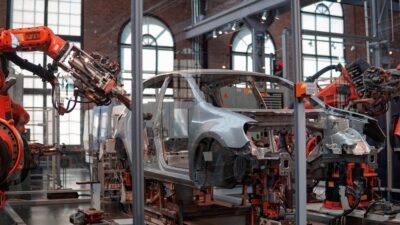Sandra Peter, Marc Stears, Joseph E Stiglitz and Sydney Policy Lab

Joseph Stiglitz on the age of inequality
Nobel Prize winner and renowned economist, Professor Joseph Stiglitz, says our rising level of inequality is not the unfortunate by-product of economic development but is the result of deliberate policy choices. Who is making those choices?
Dr Sandra Peter and Professor Marc Stears discuss Professor Stiglitz’ challenging ideas.
The Future of Power series is a collaboration between the Sydney Policy Lab and Sydney Business Insights.
Shownotes
Joseph Stiglitz’ profile – Columbia University
Chapter 11 of the North American Free Trade Agreement (NAFTA)
Paul Samuelson’s 1948 paper on International Trade and the Equalisation of Factor Prices
Paul Samuelson and Wolfgang Stolper’s 1941 paper on Protection and Real Wages
An overview on Social Contract Theory
Joseph Stiglitz’ Sydney Peace Prize 2018
Joseph Stiglitz’ latest books:
- People, Power, and Profits: Progressive Capitalism for an Age of Discontent (2019)
- Globalization and Its Discontents Revisited: Anti-Globalization in the Era of Trump (2017)
- The Euro: How a Common Currency Threatens the Future of Europe (2016)
- The Great Divide: Unequal Societies and What We Can Do About Them (2015)
- The Price of Inequality: How Today’s Divided Society Endangers Our Future (2012)
Joseph Stiglitz’ 2001 Nobel Prize for analyses of markets with asymmetric information
Joseph Stiglitz’ TedX talk on The Cost of Inequality
Around the World with Joseph Stiglitz, starting with a tour of Stiglitz’s hometown of Gary, Indiana, led by its most famous native son
Other links
Marc Stears’ article on inequality and politics
You can subscribe to this podcast on iTunes, Spotify, Soundcloud, Stitcher, Libsyn, YouTube or wherever you get your podcasts. You can follow us online on Flipboard, Twitter, or on sbi.sydney.edu.au.
Dr Sandra Peter is the Director of Sydney Executive Plus and Associate Professor at the University of Sydney Business School. Her research and practice focuses on engaging with the future in productive ways, and the impact of emerging technologies on business and society.
Marc is Director of the UCL Policy Lab. Previously, Marc was Director of the Sydney Policy Lab at the University of Sydney. His work focused on deepening partnerships with community groups who are often overlooked in the policy process.
Professor Stiglitz teaches at the Business School at Columbia University. He was awarded the 2001 Nobel Memorial Prize for Economics.
Creating new, dynamic partnerships for change between The University of Sydney researchers, policy-makers, campaigners and broader community.
Share
We believe in open and honest access to knowledge. We use a Creative Commons Attribution NoDerivatives licence for our articles and podcasts, so you can republish them for free, online or in print.
Transcript
This transcript is the product of an artificial intelligence - human collaboration. Any mistakes are the human's fault. (Just saying. Accurately yours, AI)
Intro This podcast is part of a collaboration between Sydney Business Insights and the Sydney Policy Lab at the University of Sydney, a series in which we explore the future of power.
Sandra Offered the chance to talk with one of the most highly acclaimed intellectuals alive today, most people would be thrilled, right? OK, thrilled and a little bit intimidated, but mostly very, very excited. So when Nobel Prize winning professor Joseph Stiglitz sat down for a conversation at the University of Sydney, the audience was... well I'll ask my colleague Marc Stears for his reading of the mood in the room.
Marc Well let's say people were more excited than they are for a normal undergraduate lecture. You know, it was really an excited atmosphere, frenzied almost. People coming from all over, including people, you know, who very rarely get out of bed to come and sit down and listen to an economist. People were really excited and engaged.
Sandra I haven't seen a crowd that big on the stairs outside gathering to see anyone at 10 o'clock on a Friday morning. My name is Sandra Peter and I'm the Director of Sydney Business Insights at the University of Sydney Business School. In the studio with me today is Professor Marc Stears.
Marc Hello Sandra, it's wonderful to be here.
Sandra Marc is the Director of the Sydney Policy Lab. And this conversation with Joseph Stiglitz is a collaboration between the Sydney Policy Lab and Sydney Business Insights. Professor Stiglitz was in Sydney to receive the 2018 Sydney Peace Prize. The Sydney Peace Prize is an honour bestowed by the Sydney Peace Foundation, also based here at the University of Sydney. The night before our encounter with Professor Stiglitz he had given his official Peace Prize acceptance speech at the Sydney Town Hall.
Vox Pop 1 I'm a big fan of his. He's an economist who's got a heart, which they don't all do.
Joseph Stiglitz If you believe in the law of supply and demand it should have been obvious that globalization was going to drive down the wages of unskilled labour.
Vox Pop 2 I know about his work, and I was very excited to see him speak.
Joseph Stiglitz Companies like Apple and Microsoft were not only innovative, at least to some extent, in bringing new products. They were very innovative in tax avoidance and evasion.
Vox Pop 3 What he's saying is seriously important.
Joseph Stiglitz The social contract that worked in the middle of the 20th century, which led to a wide middle class, has been broken. To me, it's a matter of choice. We could obviously afford it, it's the way we've divided the economic pie.
Vox Pop 4 OK, so he's identified the problems really well. He's talked very broadly by the solutions we already know. They're not the right answer. What's the answer? And by the way I am a capitalist and believe in capitalism.
Joseph Stiglitz There are a lot of people in Australia who want to imitate the American model, and I can assure you that if you do that, you can achieve American results.
Vox Pop 5 One of the most beautiful minds in the world.
Sandra So Marc, the brief comments we've just heard from Professor Stiglitz's Sydney talk shows he's a big picture thinker, who is also willing to deliver a pretty blunt message about the bad thinking that has landed much of the world in such a mess. Before we get to the substance of Professor Stiglitz's talk, perhaps you could paint a brief sketch of his enormous contribution to both the intellectual world, but also to public life and public discourse.
Marc Yes, so Professor Stiglitz began as a highly technical economist, with a really important following in intellectual life, in academic life. But he's gone on to real public acclaim. Not only is he a Nobel Prize winner, but he's received 57 honorary degrees. He's written more than 30 books, including airport bestsellers, on the future of inequality. I mean his recent The Price of Inequality really sets out a public policy agenda which has grabbed attention around the world. He's also been involved in political life, in a high profile public life. He advised the Clinton administration, he's advised the World Bank and the OECD. He writes very well read op-eds across the world, appears on TV, and on radio shows. So you know, if you had to name an economist, especially an economist on the centre, or the centre-left of politics today, then Joseph Stiglitz is going to be very high up that list.
Sandra Stiglitz's work is still these days very much in the policy zone, where pure economics meets impure politics. And the conversation we were part of couldn't be more timely. You're about to hear a great thinker, whose sometimes complex economic ideas nevertheless makes sense to the person on the street. And this is in large part due to his ability to convey complex ideas through books, through airport bestsellers and public talks. And in them he passionately argues about how we got here in the first place, and that ultimately, economics is about political choices. So you're about to hear Joseph Stiglitz talk about one of the most pressing issues of our time, which is rising inequality. And his starting point is really that this is in no way an economic accident, nor is it a scientific fact.
Marc Exactly right Sandra. One of Joseph Stiglitz's most important contributions is to stress that the inequality that we now face is a result of political choices, but also the ways in which companies have chosen to behave. It's not about them just going about their ordinary business, it's about them having an intentional plan to strengthen their position in the marketplace.
Sandra And he stresses the fact that markets will not always find the best solution.
Marc That's right, big companies and weak governments mean that inequality will always increase.
Joseph Stiglitz I think one of the important insights of research in recent years, is to remind us that markets don't exist in a vacuum. They have to be structured by laws and regulations. And over the last 40 years those laws, regulations, frameworks, have changed in a very dramatic way, in ways that have led to lower economic growth. One important aspect of this is market power. If you look across the sectors of the economy, very large fractions of the sector, there's been a significant increase in market power. Not necessarily a monopoly, but a concentration of market power. A whole variety of reasons for this. There's been a lot of innovation in the ability to exercise and abuse market power. Companies like Apple and Microsoft were not only innovative, at least to some extent, in bringing new products. They were very innovative in tax avoidance and evasion, and they were very innovative in taking the market power they had and leveraging it, and making it larger and larger. Why is that important? Well it's important, because if you have market power you raise prices, relative to your cost, relative to wages. And raising prices relative to wages is the same as lowering real wages. So, this is one of the important components. We've had very weak enforcement of anti-trust, and it's gotten weaker and weaker over recent decades. You have a growth of the service sector, and a lot of the service sector is local products, where reputation is important. And so you have another factor increasing market power, so there are changes in technology and market structure. But then you have innovations that make it easier to abuse market power. And then finally you have changes in government rules that give them more leeway to engage in those abuses of market power. That's on one side, and on the other side changes in the economic framework that affects the bargaining power of workers, and that affects wages more generally.
Sandra So next Professor Stiglitz moves to how the pursuit of free trade agreements have really forced wages down for the working people in all industrialised economies.
Marc That's right Sandra, so Joseph Stiglitz shows that economic thinkers have long known that globalisation is actually going to drive down wages, especially in so-called unskilled sectors.
Sandra And just a heads up that Professor Stiglitz will refer to the work of two other economists, which we'll put all the details in the shownotes. So a couple of papers by Paul Samuelson and Wolfgang Stolper.
Joseph Stiglitz So globalisation, trade, the basic idea of expanding trade based on comparative advantage, has been one of the strongest ideas in economics. But, one of the most influential papers that was written (more than 50 years ago), were two papers, one by Samuelson and one by Samuelson and Stolper. And what they pointed out was, if you really had perfectly working markets in trade between a developed and a developing country, wages in the two countries would wind up to be the same, it was called the factor price equalisation theorem. Now, you look at the advocates of free markets, the advocates of globalisation. I don't think in any country, certainly not in the United States, no politician came forward and said you know, 'globalisation is a great thing. Our wages are going to be the same as China'. It probably would not have been a selling point. Well that's what economic theory predicted, and it was a very simple idea. It was a mathematical model, but if you thought about it for 30 seconds, you would understand the underlying economics. That we would be importing labour-intensive, especially unskilled labour-intensive commodities, that would reduce the demand for unskilled labour in advanced countries. If you believe in the law of supply and demand, if you reduce the demand for unskilled labour, what is that going to do? Drive down the wage. And it should have been obvious that globalisation was going to drive down the wages of unskilled labour. I was in the Clinton administration, and there was discussion about this. And there was an expression in United States called 'voodoo economics', that somehow it was what Reagan believed in. But it was somehow, in spite of the laws of demand and supply, everybody's going to be better off. It's was called 'trickle-down economics'. You asked them 'where's the theory, how is this going to happen?'. No one had an answer. They just believed it, the advocates of globalisation just believed it.
Sandra So just to make it clear what voodoo economics are, it's a derogatory label given by George Bush senior to the policies of Republican President Ronald Reagan. Well, that's at least until he became Reagan's vice president. Reagan really believed in this idea of trickle-down economics, but Stiglitz argues that other politicians and other business leaders were not actually that naive.
Marc Wages were going down and all sorts of ways, that Joseph Stiglitz's argument. And there are some people out there who actually wanted wages to go down.
Sandra So this is the time the global free trade movement really kicked off, and this was quite intentional, and it was all about creating winners and losers.
Marc And at the same time that trade picked up, there are all sorts of other attacks on labour’s ability to argue for increased wages, so restrictions on trade union behaviour. And Joseph Stiglitz brings globalisation and those restrictions together.
Sandra So let's see in a bit more detail how these political choices were really quite important to economics.
Joseph Stiglitz Now the good thing for the Democrats was that they argue that 'yes, there are going to be some people who are going to have trouble going from the old jobs to the new jobs', and we needed what was called Trade Adjustment Assistance, and anybody who had any sense of humanity would say 'yes, you ought to help the people who are going to be losing their jobs move from the old jobs to new jobs'. It's just a question, not only of justice, but of economic efficiency. People don't make those adjustments on their own. But the vast majority of Republicans opposed it. And you have to say why? Well there's one interpretation, they like people to suffer. But I actually don't think that that's what was going on. I think it could have been just a naive ideology, let the market take care of it. Social Darwinism. But I think it's also, on the part of a lot of the employers, you might say a very simple idea. Globalisation was going to get you cheaper labour abroad, with a lot of workers suffering in the United States, was going to get cheaper labour in the United States. That it would exercise downward pressure on wages. And guess what? It did! And so the normal economic forces put downward pressure on labour. But then you combine that, at the same time that you're doing this through globalisation, you're weakening the bargaining power of workers in a whole variety of ways.
Sandra Professor Stiglitz does bring up other means of wage suppression, and he first starts with the insidious use of investment agreements within free trade agreements. Investment agreements are a routine part of trade agreements between countries. But Stiglitz argues that under the cover of FTAs, more powerful countries have consistently coerced weaker nations into accepting investment terms that really would be illegal in their own jurisdictions.
Marc And the examples he gives are really shocking. I mean people will be surprised that they haven't heard these stories before. And then he goes on to demonstrate that it's just one way in which workers have seen their wages suppressed. So again politics everywhere in economics for Joseph Stiglitz.
Joseph Stiglitz So one of the things in the way we did globalisation is we had investment agreements in our trade agreements, like Chapter 11 in NAFTA. And what do these investment agreements do? These investment agreements gave American firms, as an example, stronger property rights if they invested in Vietnam or in Mexico (in the case of NAFTA, Mexico) than if they invested in the United States. What do I mean by stronger property rights? Well, if in the United States the government changes the law and says, for instance, if you sell products that kill people, you ought to label them. This is dangerous for your health. I'm talking about cigarettes right now. But, if you do things that are bad for the environment, we have the right to regulate that, and you can't sue us for the fact that your assets are going to be worth less, because we've regulated. It's called a regulatory taking. And both in the courts, and in Congress, we said 'no compensation for these kinds of regulations'. But in NAFTA, in Chapter 11, there was a provision that said if a foreign government, if Mexico does this, the company can get compensated, and not just for the investment, for all the future profits that they might get. So it encouraged firms to move abroad. But why that was important is, it totally eviscerated the bargaining power of workers. I can't describe how bad it was. The lawyer who drafted this, a Canadian lawyer, said he designed the provision so that if an American company were putting plutonium in baby cereal, and the Canadian government passed a law that you cannot put plutonium in baby cereal, he would have the right to sue. So this gives you the legal framework that affects property rights, and that affects what happens. So in addition to that, through a whole set of decisions in the National Labour Relations Board, a whole set of laws we call 'Right to Work' laws. You have very similar ones, but really are not 'right to work'. They're really 'right to free-ride' on the efforts of unions to engage in collective action on the behalf of workers. And of course that's going to lead to weakening of unions. A whole set of things like that, and that meant that the bargaining power of workers was weakened. Well, you combine those two things, and real wages are going down because of market power of firms, nominal wages are going down because of the weakening of bargaining power of workers, and you get more and more inequality. So that's a part of the story. The other part of the story is going from inequalities in market income, to after tax and transfer. And what we've been doing is going to a less progressive tax and transfer system, and actually regressive. In the United States Warren Buffett said why is it that he pays a lower tax rate than his secretary? And he was saying that, you know, he's one of the richest people in America, and he said 'this is wrong. This is morally wrong'.
Sandra And Warren Buffett quite often makes this point, that he pays a lower tax rate than the people who work for him.
Audio - Warren Buffet I don't think our tax system is very equitable, and I think it drifted dramatically in the last 10 years toward favouring rich guys like me. So I pay a lower tax rate on much of my income than my cleaning lady does. And I think that's crazy.
Sandra So apart from tax, the question then is: what are the political levers that can be pulled to promote greater equality?
Marc Well education could be one.
Sandra Yep. So a poor education program only would reinforce people's place at the bottom of the social scale.
Marc And Professor Stiglitz shows that the way that education is structured in the United States means that poor people get poor education.
Sandra And we'll hear him talk about the fact that the lack of educational quality goes a long way to explaining the underlying economic conditions behind the rise of Trump in politics.
Marc And Professor Stiglitz did go out of his way to say that in Australia things are a little bit different. That economic disadvantage doesn't track educational disadvantage in quite the same way, partly as a result of the income-contingent loans that enables people from poorer backgrounds to go on to higher education.
Joseph Stiglitz One of the things in America is that we've had over the last 30, 40 years, really interesting research showing that we are becoming a more economically segregated country. Rich people live with rich people, and poor people with poor people. Now where that's important is we have local public education. We don't have national funding for education so that means if you are poor, you are born in a poor community, you get poor education. And so you get the perpetuation of advantage and disadvantage. And so this is another ingredient in the growing divide, the result of which is not only do we have, I don't mean to be bragging here, but we do have the highest level of inequality than any other advanced country. And we have among the lowest levels of equality of opportunity. That means that the life prospects of young Americans are more dependent on the income and education of his parents, than in other advanced countries. Only 37 percent of Americans now believe that their children will be as well off as they are. So if you wanted to understand a little bit about why there are these political trauma, that the United States is going through, people you know successive, how could somebody like Trump be a successful? There's a lot of unhappiness. Life expectancy is going down, especially in those areas of deindustrialisation. And there's a lot of anger, and he's fed on that not giving solutions. And this is a problem that we've let fester for a very long time.
Sandra Professor Stiglitz did have time to answer some audience questions, and some of them were really quite interesting and challenging.
Marc It didn't necessarily get much cheerful though, he began with some grim news about the economic impacts of artificial intelligence and the gig economy.
Joseph Stiglitz I think some of these technological changes are almost surely going to make everything that I've described so far, much worse. It's not inevitable. The pie is bigger, the national pie is bigger. Just how globalisation made the national pie bigger. But at the same time that it was making the national pie bigger, it was making the slice of the pie that was going to unskilled workers smaller and smaller. So, part of it depends on the nature of technical change. Right now, you see a lot of innovation directed to replacing unskilled labour. As if we don't have enough unskilled labour unemployment, they want to increase it even more. No rational society would organise innovation in that way, but that's what we're doing. Now, there are two other aspects that you raised in your question. One of them is the gig economy. What I worry about is, it's going to be more difficult to organise workers in the gig economy. Not impossible, but we're going to have to change labour law to make it easier to organise, collectively, workers in the gig economy, and there are some efforts of doing this already. But it is going to be a challenge. The other thing, when Twitter first came along (the other Facebook), Twitter made a big deal that it was democratising. access to the media, anybody could post. But we now know it wasn't democratising. If you have a lot of money, you can buy a lot of bots, and you can drown out other voices. And so what we have seen with Twitter or Facebook, it is given new opportunities for manipulating our democracies, and really undermining our democracies. So, what might have been a levelling, has turned out to be actually a worsening. And we haven't yet gotten the regulatory framework to deal with the real threat that is being posed by Facebook and Twitter.
Marc Professor Stiglitz then asked questions about the social contract, the deal that bonds people in different societies together. The idea that something which works for the middle class, should also work for the working class, and work for the upper class.
Joseph Stiglitz The fact is that the social contract that worked in the middle of the 20th century, which led to a wide middle class, has been broken. And to me it's always a very peculiar thing that we are so much wealthier than we were 80 years ago, and yet a large fraction of our population can't get the basic perks of a middle class. They feel more anxious, in the United States that can't send their kids to college, they can't get housing. So all these things that we could afford, not perfectly but 80 years ago, seem unaffordable today. So to me it's a matter of choice. We could obviously afford it. It's the way we've divided the economic pie, the 'for whom? question, and it's the way we've organised our society. And in the United States it's obviously in many ways much worse than in Australia. But I can tell you there are a lot of people in Australia who want to imitate the American model, and I can assure you that if you do that, you can achieve American results. So I think it's absolutely necessary for us to have a new social contract. In the United States. we have a real problem, which is I think the Republican Party knows that the views that they support are a minority view. And the only way in a democratic society that you can sustain views that are disliked by a majority of the people. Three fourths of America want to increase the minimum wage. Three fourths of Americans want gun control. Three fourths of Americans want better banking regulations, want better health care. Now how, in that kind of a world, and you can't get this through Congress, how does a minority maintain power? There are only two ways. One, make sure that people can't vote. What you have is something I think is very valuable. You make it a civic duty to vote or at least to go to the voting place. And I think the right to abstain is fine, but you've fulfilled the major cost, the transaction costs of going there. So one way is disenfranchisement, in one way or another. And the other way is you tie their hands. You tell the government you can't do these things. It violates the Constitution to provide health care to everybody. It violates the Constitution to restrict people of having AK-47, so that when you go to pray, everybody in the prayer meeting is supposed to have an AK-47 so that if somebody comes in, you can kill them. Can you imagine the kind of spiritual climate that Trump is trying to create?
Marc The last question came from a young economic student who wanted to know what Professor Stiglitz's advice was as to what questions he should be asking, what should he be doing in economics today.
Joseph Stiglitz That's a really hard question, but I guess that's maybe the first point I would make: ask hard questions. There are a lot of easy questions to answer, and that's important. Science progresses step by step. Not everybody can answer the really hard questions, but one should at least have the ambition of answering the hard questions, and not just go after the low hanging fruit. I guess the second thing I would say is: don't trust anybody. By that I mean, when I was a graduate student I was taught these models of perfect competition, and all that. And my reaction is, they obviously didn't grow up in Gary, Indiana. They didn't know what they were talking about. And I remember, you know, having conversations, I became convinced that there was something wrong with those models, fundamentally wrong. And I began very young saying: the issue was, all models are simplifications, but what was the fundamental thing that they got wrong? And you know, I'd say they got lots of different things, so it was a rich area. And I picked on one, which is imperfections of competition, but I knew the economics profession would never buy it. At that time. But on the other hand, it was so obvious that information was imperfect. So, you created models where, with rational expectations but imperfect information. They could understand that. And I could show that everything they believed was wrong. And it was uncomfortable, but, you know, you couldn't deny that. So now I would say the profession has advanced, and now behavioural economics has opened up the idea that we're not quite as rational as we thought. And the second strand of behavioural economics that I've been involved in, we were saying 'look, who we are is determined by our society, and we determine society'. So there's this general equilibrium, a general interaction that one has to begin to think about, and is a hard issue. But it means you have to break out beyond the boundaries of economics.
Sandra Before we leave Professor Stiglitz, I thought just reflecting back a little bit on the tremendous contributions that he's had over the last 30, 40 years with his research. And to me, one of the things that stands out is the fact that some of his ideas are really timeless, and quite simple and elegant. The fact that one of the most dangerous ideas that we hold today, he would say, is the fact that we somehow intuitively believe that the rising tide lifts all boats, that if we only just grew the economic pie, everyone would be better off. And that, as he's shown with his research over the last 30 years, is just not true. Unregulated markets will not lead to better outcomes across the board, they will consistently lead to increasing economic inequality.
Marc Joseph Stiglitz thinks big, there's absolutely no doubt about that. And he's always prepared to challenge convention, and challenge orthodoxy, even when it comes at a risk to his own reputation, or his own position in the profession. But in addition to that, he does his work in an extraordinarily innovative and creative way. I mean, challenging the ways in which a whole discipline thinks, getting people to think about their fundamental methods, as well as thinking about the outcomes of their research, and their political relevance and their social importance.
Sandra But that's of course also an invitation to all of our listeners, and to all those who have been following Professor Stiglitz's work, to get involved, to participate in the conversation, and to help him push those boundaries, through our research and through the work and the policies that we implement. And Marc, thank you so much for joining me in the studio today, it was a pleasure discussing Professor Stiglitz's work with you.
Marc Thank you so much for having me.
Outro This conversation with Professor Joseph Stiglitz was part of a collaboration between Sydney Business Insights and the Sydney Policy Lab. This podcast was edited by Megan Wedge, and was researched by Jacquelyn Hole.
Close transcript







